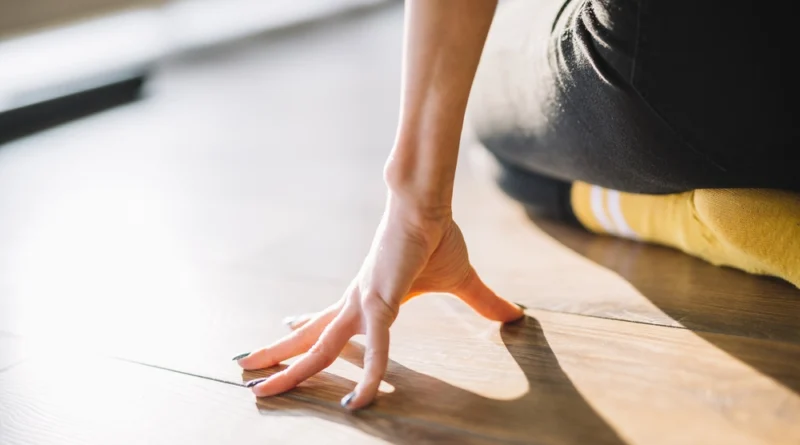Waterproof Flooring Myths Busted: What You Really Need to Know
In 2025, choosing the right flooring isn’t just about looks — it’s about durability, practicality, and performance. Yet, the market is flooded with noise, half-truths, and outdated advice when it comes to waterproof flooring. You’ve likely heard that “all vinyl is waterproof” or that “only tile can truly handle water.” But how much of that is actually true?
Let’s set the record straight. Whether you’re remodeling your bathroom, updating a basement, or finally investing in the kitchen floors you’ve always wanted, knowing the facts — not the myths — can save you time, money, and major headaches. This guide breaks down the most persistent misconceptions and gives you the clarity you need to make smart flooring decisions in 2025.
Myth #1: Waterproof and Water-Resistant Mean the Same Thing
The Reality:
These terms are often confused, but the difference is critical. Waterproof flooring can withstand standing water without damage, while water-resistant flooring only delays absorption.
Why This Matters:
A minor leak could destroy your “water-resistant” laminate. With true waterproof flooring, you have a much wider safety margin.
Myth #2: All Vinyl Flooring Is Waterproof
The Reality:
Nope. Only specific types of vinyl flooring — like LVP (Luxury Vinyl Plank), LVT (Luxury Vinyl Tile), SPC, and WPC — offer real waterproof protection.
What to Look For:
Seek a rigid waterproof core and sealed seams. Cheap peel-and-stick vinyl? That’s not waterproof unless clearly labeled.
Myth #3: Waterproof Flooring Is Indestructible
The Reality:
It’s water-resistant, not invincible. Waterproof floors can still scratch, dent, or fade under abuse.
Smart Move:
Use protective pads under furniture and trim your pets’ nails. Waterproof doesn’t mean careless-proof.
Myth #4: Only Tile Is Truly Waterproof
The Reality:
While porcelain and ceramic tile are waterproof classics, today’s SPC vinyl and some engineered hardwoods offer equally strong water protection — with added warmth and style.
2025 Trend:
Waterproof vinyl is dominating living areas, blending comfort and function beautifully.
Myth #5: Installation Doesn’t Matter If It’s Waterproof
The Reality:
Even the best waterproof floors can fail if installed incorrectly. Gaps, uneven subfloors, and poor sealing are common culprits.
Pro Insight:
Hire a certified installer or follow the manufacturer’s instructions precisely — especially for wet areas like bathrooms and laundry rooms.
Myth #6: Waterproof Flooring Looks Cheap
The Reality:
Not anymore. In 2025, waterproof flooring often rivals natural wood and stone in appearance — and sometimes looks even better.
Why You’ll Love It:
With beveled edges, high-resolution textures, and natural grain finishes, waterproof flooring now fits luxury homes just as well as rentals.
Myth #7: It’s Only Meant for Bathrooms and Kitchens
The Reality:
Waterproof flooring isn’t limited to wet zones. It’s an ideal solution for any room in your home thanks to its durability and easy upkeep.
Whole-Home Perks:
From basements to bedrooms, waterproof floors offer resilience with zero aesthetic compromises.
Myth #8: It’s Too Expensive for the Average Homeowner
The Reality:
There’s a waterproof floor for every budget. Entry-level LVP is surprisingly affordable, while SPC provides premium performance at mid-range prices.
Money-Saving Tip:
Set a clear budget, explore various brands, and compare warranties. Great style doesn’t always mean a high price tag.
Myth #9: Waterproof Floors Are Slippery
The Reality:
Many waterproof flooring options now come with slip-resistant textures designed for wet areas.
What to Choose:
Look for ADA-compliant or slip-rated surfaces if safety is a concern — especially in homes with kids or seniors.
Myth #10: No Maintenance Is Required
The Reality:
Waterproof floors are low-maintenance, but not no-maintenance. Dirt, grime, and abrasive cleaners can still wear them down over time.
Quick Care Tips:
Clean spills promptly, avoid steam mops unless approved, and use gentle, non-acidic cleaners for best results.
Myth #11: You Can Skip the Underlayment
The Reality:
Some waterproof flooring comes with underlayment attached — but many don’t. And skipping it can impact soundproofing and comfort.
What to Know:
Underlayment helps with warmth, softness underfoot, and noise control. Always read the product specs.
Myth #12: You Can’t Install Waterproof Flooring Over Existing Floors
The Reality:
You can, but only over suitable surfaces like tile, wood, or concrete. Carpeting, warped floors, or uneven subfloors can create major issues.
Installation Tip:
Prep is everything. Make sure your subfloor is clean, dry, and level before you begin.
Get the Right Flooring for Your Lifestyle
Want help picking the best waterproof flooring for your space? Don’t fall for outdated advice — instead, explore this expert-curated waterproof flooring trends guide to find styles that match your needs, design preferences, and budget.
Final Thoughts
In the world of flooring, misinformation is everywhere. But in 2025, it pays to be informed. Waterproof flooring has evolved — it’s smarter, more stylish, and more versatile than ever. By busting these common myths, you’re one step closer to choosing a floor that’s not only functional but also elevates your home.
So, before you buy, pause. Question what you’ve heard. And make the choice that’s truly right for your home and your lifestyle.
FAQs
Is waterproof flooring worth it if I don’t have kids or pets?
Absolutely. It’s a future-proof investment that handles spills, cleaning, and wear-and-tear with ease.
Can I use steam cleaners on waterproof flooring?
It depends. Always check the manufacturer’s recommendations — some allow it, others don’t.
What’s the most cost-effective waterproof option?
Luxury Vinyl Plank (LVP) delivers excellent waterproofing, visual appeal, and affordability.
Are these floors really pet-friendly?
Yes — many are scratch-resistant and super easy to clean. Perfect for furry companions.
How long will waterproof floors last?
With proper care, high-quality waterproof floors can last 15 to 25 years or more.

